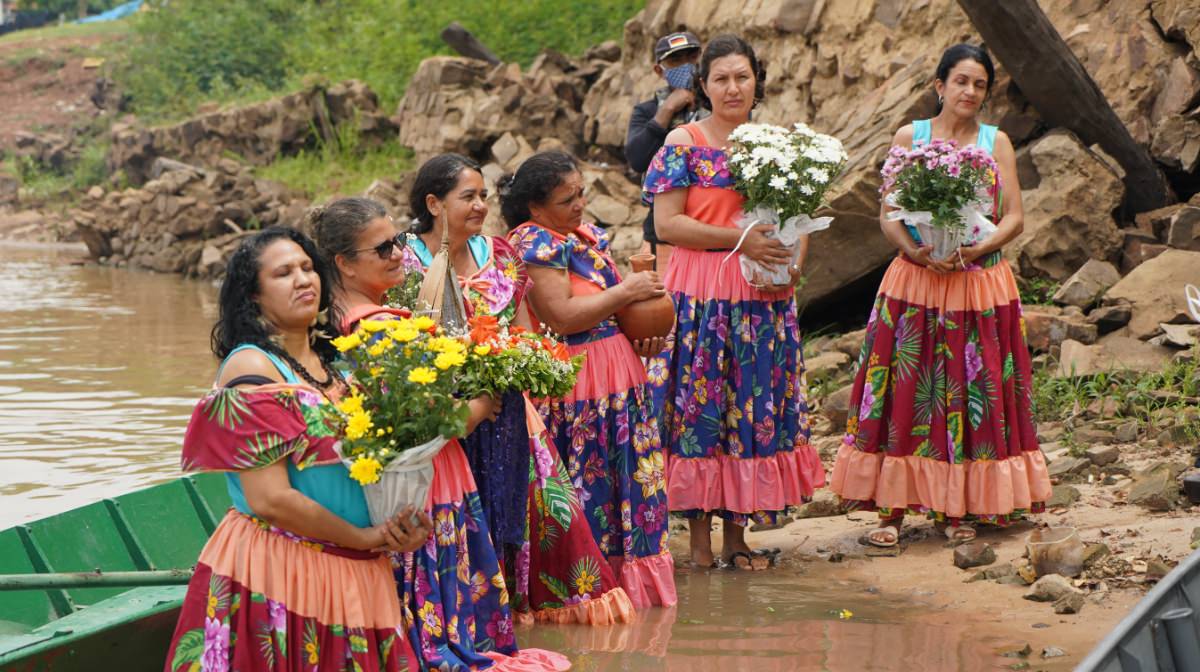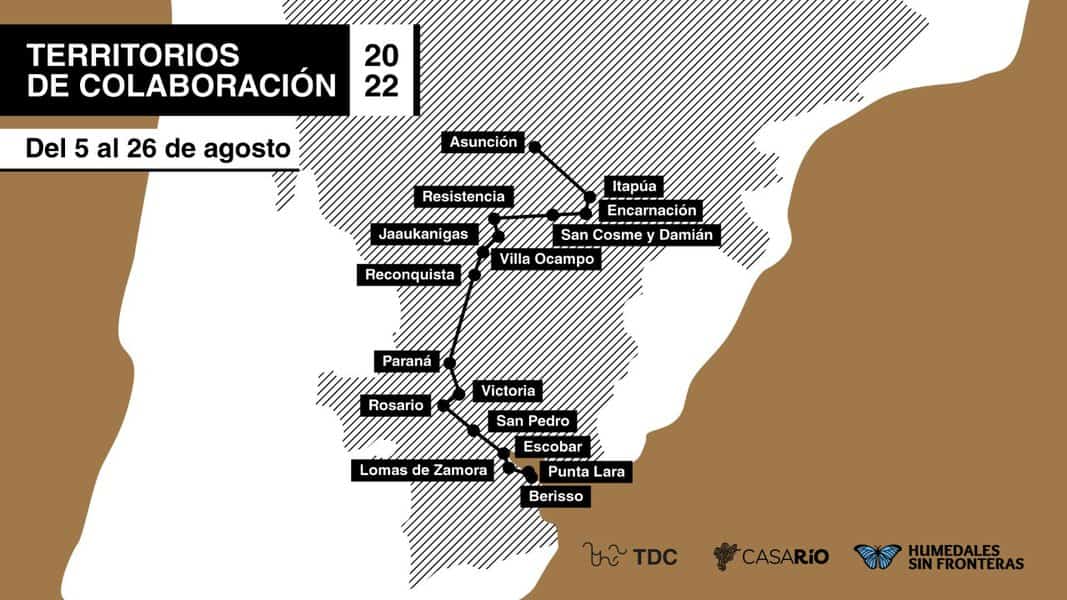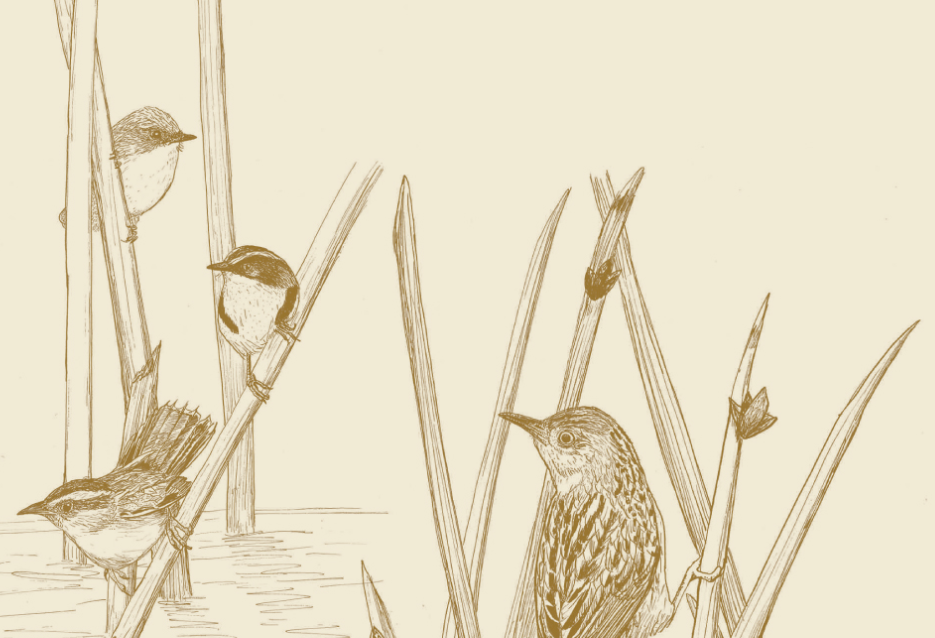The La Plata Basin was once comprised of interconnected ecosystems – jungles, savannahs, grasslands and wetlands – joined together via the water. Today, the region’s intact natural and cultural habitats are mainly found in fragmented protected areas and indigenous territories. To reverse this trend, the Wetlands without Borders network is creating Biocultural Corridors that reconnect and strengthen the resilience of similar natural habitats and communities that share common socio-cultural practices. More than ten Biocultural Corridors are being developed, with two now officially recognised by local municipalities.
What we have achieved since the start
of our initiative in 2018
10+
We have identified and started implementing more than 10 Biocultural Corridors throughout the La Plata Basin
2
2 biocultural corridors have been integrated in official spatial planning documents
Fragmented ecosystems
The expansion of large-scale agricultural and meat production in the La Plata Basin has turned many of its ecosystems into isolated islands. The fragmentation of the region’s ecosystems has rendered many areas biologically unviable and unable to fulfil their customary cultural functions. Many waterways, water sources and watercourses have deteriorated to the extent that they no longer can sustain human settlements.
Protecting the health and free flow of the region’s rivers is crucial for the survival of the La Plata Basin ecosystem and the people who depend on it.
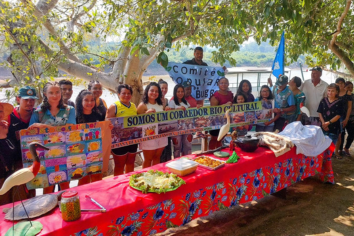
Communities across the La Plata Basin have started to recognise, value and celebrate the biocultural corridor they are part of
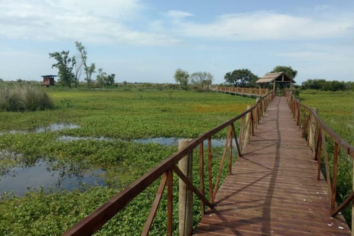
Making nature reserves accessible to the public is part of the creation of and awareness raising about biocultural corridors
Restoring connections between ecosystems
The concept of Biocultural Corridors is centred on the interconnection between ecosystems, and the restoration of their original biological and cultural functions as pathways of biological and cultural exchange. Through festivals, campaigns and educational activities, we are raising awareness and celebrating the historical and cultural relationship of communities in the La Plata Basin with the wetland ecosystem. We are uniting communities across Biocultural Corridors to nurture their unique cultural practices and work together to improve the basin’s water quality and its ability to support sustainable livelihoods and healthy living spaces.
Like agroecology, Biocultural Corridors enhance resilience of the La Plata Basin’s ecosystems and local communities, making them more resistant to biological, climate, social and economic shocks. Wetlands without Borders is advocating for formal recognition of Biocultural Corridors as a means of preserving and restoring ecosystems, and nourishing the culture of La Plata Basin communities.
Thanks to our efforts, in Paraguay two Biocultural Corridors have been officially recognised by the municipalities. In many other places, the corridors take form by combining public awareness raising, seeking official natural protection and other activities, like in the Riachuelo-Matanza Corridor in Argentina. We’ll continue our work on these and other Biocultural Corridors in the coming years, to make the unique ecosystems of La Plata Basin strong and healthy again.
